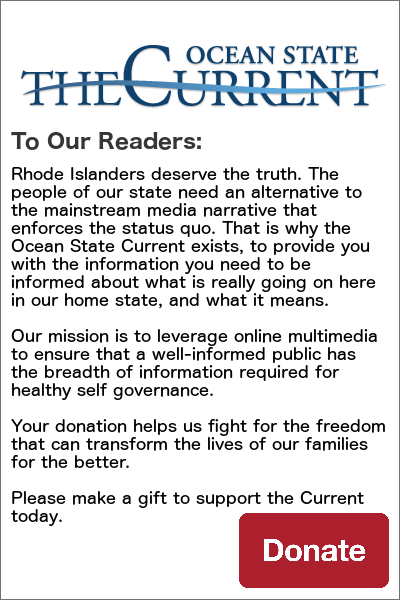Economic Progress Institute Provides Its Own Test Case
One might expect an op-ed that goes after a specific report from a specific group at least to get basic facts about its subject matter correct. Instead, what Douglas Hall, Director of Economic and Fiscal Policy for the Economic Progress Institute, provides with his essay in the Providence Journal is like one of those lessons in which a parent shows his or her child what not to do by accidentally doing it. (“Be careful not to touch this exposed wi… YOWW!!!”)
“Policymakers, journalists and the Rhode Island public would be wise to look more deeply at the underpinnings of various state rankings, especially those that purport to measure the factors that lead to economic growth and prosperity,” he writes. Mr. Hall should have included poverty advocates on his list, as well, considering this paragraph:
The Family Prosperity Index (FPI) is published by the American Conservative Union Foundation, “the nation’s original conservative organization.” The FPI highlights “family values” indicators, including the marital status of mothers, illicit drug use, and church attendance, with Rhode Island ranking 48th among all states. The most obvious measures of “family prosperity” which show Rhode Island faring considerably better — median family income (12th) and mean family income (16th) — are not included in the report.
If Hall had actually reviewed the FPI as he encourages readers to do, he would have noticed that it does, indeed, include real per household personal income as a subindex of its “Economics” score. The difference between “household” and “family” moves Rhode Island to 17th, rather than 16th, for this specific point, but it’s disingenuous abuse of a quibble if he knowingly left this information out of his essay on a technicality.
[box type=”note” style=”rounded”]To Our Readers: We need your support to challenge the progressive mainstream media narrative. Your donation helps us deliver the truth to Rhode Islanders. Please give now.[/box]
If this wasn’t just carelessness on his part, but was instead an attempt to be deliberately misleading, readers might have profited from an extended explanation of why he thinks it doesn’t create a more-full picture of the state’s condition to then join this specific data point with the other subindexes under “Economics,” namely:
- Private sector share of personal income
- Cost of living
- Entrepreneurship
- Unemployment
Putting all of these together lands us as 43rd in Economics. In summary, the Economics measure is the amount of income we have, related to the cost of living here, and our ability to use that capital to grow our state’s economy and improve our standard of living.
Perhaps Hall was merely confusing his indexes. He writes approvingly of Annie E. Casey Foundation’s Kids Count Data Book, on which Rhode Island ranks 29th, but it is that index that doesn’t include the median/mean income measure.
Somebody actually interested in fostering public awareness and discussion would acknowledge the key point that Douglas Hall ignores: These indexes all attempt to measure different things and will align with different priorities. Hall’s demand that we “stop measuring the Ocean State’s well-being with someone else’s yardstick, and instead decide for ourselves what kind of state we want to live in, and what we need to do to get there” is foolish. Deciding things for ourselves does not negate the value of reviewing “yardsticks” that others have done the work of creating.
As we do so, we should look under the hood of the ideology that people such as Hall bring to their end of the discussion. Rhode Island would rocket to the top of the Kids Count ranking if we stopped anybody on the lower half of the income scale from having any children at all. In other words, Kids Count doesn’t ultimately count kids. The FPI, by contrast, places a value on the number of children and fertility.
So what “kind of state” does the FPI imply that Rhode Island should be? One with growing, healthy families that prosper without dependency on government and the “experts” who populate government-satellites like the Economic Progress Institute.
If we’re having a vote on the direction of our state, count mine under that goal.


